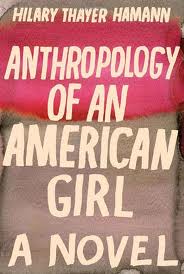Celebrating Libraries: Installment #1
This is my first of several entries in recognition of libraries. With the Texas Librarians Association annual conference this week, I want to reflect on the ways that libraries have influenced and enriched my life. Â
Â
Library MemoriesÂ
Fall 1993
I was in junior high, and I’d just made the decision to take “advanced†social studies—a class that had daunted and thwarted many a student before me. But we were working on a group research project on Ancient Egypt, and the atmosphere in the expansive library was electric. (Did I really just refer to the atmosphere in a library as “electric?â€) My junior high library had high ceilings and windows that stretched long and tall, letting light fall across the room in sweeping arcs even in the dead of winter. Across the table from me, my would-be boyfriend bent his head over an encyclopedia. My best friend doodled on her notes with a practiced hand. Our fearless, authoritative, but somehow good-humored teacher calmly walked between tables, looking over our shoulders and nodding quietly. Studying was cool in this class, and I felt more at home than I’d ever anticipated.
Spring 1997
My high school library was unfortunately cramped and small. We hadn’t transitioned yet to digital cataloguing, which made it feel even further outdated. I was looking for reading on feminism, and stumbled across an old, tattered copy of The Feminine Mystique in the stacks. I thumbed through it while sitting across from the impossibly-cute but hilariously-geeky Antone, who was avidly pounding away at the keys on his calculator. (Antone would later be voted “Class Calculator.â€Â And I’m not kidding.) I was intrigued by the book I’d just picked up, but I wasn’t sure how to access it yet. Second-wave feminism? The 1960’s? It all felt so foreign to me. Who knew that roughly ten years later I’d return to the Friedan text as a graduate student and devour it like a bag of Doritos?
Spring 2001
I was a senior in college, living off-campus, desperately in need of a quiet study space. And I was lucky enough to have a library that was every bit as old-school as my liberal arts college. It was filled with long, heavy wooden tables, marble floors and columns, and vaulted ceilings. It was breathtaking to the point of distraction. So of course it also had the requisite study carols, where I’d hide away with my laptop and push through my undergraduate thesis. After hours of interviews, I was assembling stories about adolescent female athletes. It was as much a process of self-reflection as it was a piece about other girls’ experiences, and I learned about myself as well in that library. I learned who I was as a student, as a female, and as an athlete. I could argue that I became an adult there, too, but I still don’t feel like an adult now…So that’s out.
Fall 2004
I was in graduate school and feeling absolutely shredded by the intense reading load and academic politics. My brain needed a break, so I went to the undergraduate library and headed straight for the fiction section. Picking up a copy of Wicked, I sought refuge in an imaginary world on an industrial couch in a library that was far more institutional than the one I’d known at my own undergraduate institution.  I buried myself in Gregory MaGuire’s version of Oz, and quickly fell asleep to the hum of fluorescent lights and pencils on notebook paper. When I woke up, I wondered if I was too old to be taking naps in academic libraries. But I quickly decided that you’re never too old for naps…Or for libraries, for that matter.
Summer 2010
Through some email listserve or another, I’d heard about a reading at my newly-opened neighborhood library. I’d returned to fiction-writing with greater conviction roughly six months before, and I was trying to access as much of the writing world in Austin as I could. A massive summer thunderstorm blew through just before the event was slated to begin, but I was determined to make it there. I slipped and staggered my way through the sliding doors, shaking rainwater off my sandaled feet and out of my hair, just in time.  The author was warm and gracious, and the crowd was small enough that I learned everyone’s name and chatted comfortably. By the end of it, I’d met someone who is now a very dear friend and critique partner. My local library gave me yet another gift that summer. It wasn’t a book, but it was something infinitely more valuable.
 Winter 2010
I was a language arts teacher, putting on a play with my classes just before the winter holidays, as I’d done for the last five years. But this year, I had an incredible librarian who opened up her space to my classes, and we changed the format. We turned the library into a theater, with rowed seating and flashing lights. We had a staging area, props, sound, and a “lobby†where parents arrived with food and donations to our clothing drive. The library was an open, welcoming, lively place for our performance. The old notion of a library being stuffy and quiet was thoroughly debunked by the energy of 150 seventh-graders, their pre-holiday frenzy, and the adult enthusiasm that mirrored them. There wasn’t a “shush†in the house that day.
